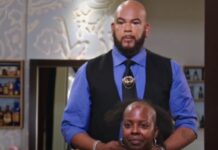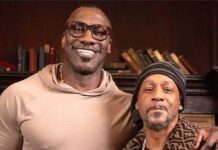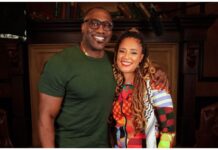*African American life is defined by the shadow of its brutal domestic history. Born to a lineage caste from the iron of slave shackles, and outlined in Federal Housing Administration lines penned with the red blood drained from native black American communities over the course of centuries. Black Americans are a people mixed with slave owner and slave who were deliberately shut out of virtually all access to wealth for nearly 400 years. Indeed, as harsh as the above description is, it may in fact understate the extent to which native black disadvantage provided the raw materials necessary to build the richest country on earth. Native descendants of American slaves—or American DOS—literally served as the very currency that undergirded the early American economy.
In his article, “The Case For Reparations”, Ta-Nehisi Coates quotes Yale historian, David W. Blight, who notes,“In 1860, slaves as an asset were worth more than all of America’s manufacturing, all of the railroads, all of the productive capacity of the United States put together.” Blight continues by saying, “Slaves were the single largest, by far, financial asset of property in the entire American economy.”  Yet despite all of this, recent immigrants from the continent of Africa are striving to create what amounts to a solidarity of sameness with American DOS. One built largely around a narrative which encourages all blacks to view the continent of Africa as a sort of unified country, and the United States of America as merely a transient one. They envision a broad solidarity built on an identitarian oneness that—by its very nature—undermines the unique claim of reparations being owed to American DOS as a result of particular injustices they have borne since arriving in the country. Furthermore, this imagined coalition complicates the issue of who should even have a right to speak as a representative of American DOS on repairing the damage wrought upon black American families. Essentially the solidarity is the painting of a fantastical unified Africa that fought to get American DOS back since the day the first among them were stolen in 1619. It is truly a version of history in which Wakanda and Zamunda might as well exist. In effect this solidarity through African Americanness has become a one-way door that admits everyone with melanin and African origins, and allows them the ability to integrate—at least superficially—into the culturally embedded position that American DOS have traditionally exclusively occupied in the United States. While giving no specialized access to African countries for American DOS.
Yet despite all of this, recent immigrants from the continent of Africa are striving to create what amounts to a solidarity of sameness with American DOS. One built largely around a narrative which encourages all blacks to view the continent of Africa as a sort of unified country, and the United States of America as merely a transient one. They envision a broad solidarity built on an identitarian oneness that—by its very nature—undermines the unique claim of reparations being owed to American DOS as a result of particular injustices they have borne since arriving in the country. Furthermore, this imagined coalition complicates the issue of who should even have a right to speak as a representative of American DOS on repairing the damage wrought upon black American families. Essentially the solidarity is the painting of a fantastical unified Africa that fought to get American DOS back since the day the first among them were stolen in 1619. It is truly a version of history in which Wakanda and Zamunda might as well exist. In effect this solidarity through African Americanness has become a one-way door that admits everyone with melanin and African origins, and allows them the ability to integrate—at least superficially—into the culturally embedded position that American DOS have traditionally exclusively occupied in the United States. While giving no specialized access to African countries for American DOS.
As a result, African immigrants just like American DOS are also provided with access to affirmative action policies which—importantly—were conceived as a manner of recourse for the American DOS community following centuries of discrimination. President Lyndon Johnson—in his 1965 commencement address at Howard University—emphasized how understanding the particular historical situation of American DOS, and its consequences, prompted such legislative action:
“But freedom is not enough. You do not wipe away the scars of centuries by saying: Now you are free to go where you want, and do as you desire, and choose the leaders you please. You do not take a person who, for years, has been hobbled by chains and liberate him, bring him up to the starting line of a race and then say, “you are free to compete with all the others,” and still justly believe that you have been completely fair.”
In fact, this ideology of common African ancestry is observable as a motivating factor in what brought us the presidency of Barack Obama. Our imaginations were so captivated by the idea of a shared connection built on the fact that—as black people—we all at one point came from some place in Africa, that our nation elected as the first African American president a man who would go on to spurn the idea of reparations for American DOS. Of reparations, President Obama had this to say to Coates in the Atlantic piece, “My President is Black,”
“Sometimes I wonder how much of these debates have to do with the desire, the legitimate desire, for that history to be recognized. Because there is a psychic power to the recognition that is not satisfied with a universal program; it’s not satisfied by the Affordable Care Act, or an expansion of Pell Grants, or an expansion of the earned-income tax credit.” These kinds of programs, effective and disproportionately beneficial to black people though they may be, don’t speak to the hurt, and the sense of injustice, and the self-doubt that arises out of the fact that [African Americans] are behind now, and it makes us sometimes feel as if there must be something wrong with us—unless you’re able to see the history and say, ‘It’s amazing we got this far given what we went through.’
“So in part, I think the argument sometimes that I’ve had with folks who are much more interested in sort of race-specific programs is less an argument about what is practically achievable and sometimes maybe more an argument of ‘We want society to see what’s happened and internalize it and answer it in demonstrable ways.’ And those impulses I very much understand—but my hope would be that as we’re moving through the world right now, we’re able to get that psychological or emotional peace by seeing very concretely our kids doing better and being more hopeful and having greater opportunities.”
The problem is that—while President Obama is indeed black—he is not African American, he is half Kenyan-American, and the two are not interchangeable. This difference in classification exists according to many African immigrants themselves who when self identifying create distance from the classification African American. Why would you call yourself African American if you know what country your family is from?
And also due to the origins of the term ‘African American,’ which Jesse Jackson first introduced nationally in 1989 in order to provide a somewhat more precise marker of identity in this country for the lost progeny of slavery. Prior to this American DOS were regarded as black, or negro, or colored. But what black Americans weren’t—on a national level—was African. And despite its obvious flaw of joining a highly disconnected continent and a single country, the term took root in the nation’s consciousness and regrettably created widespread confusion about what being black in America since before slavery was abolished actually meant— rooting a confusion of fractured nationality.
Even the African Development Bank has spoken to the insularity of certain regions on the continent. While we are made to believe Africa is geographically unified and harmonious, they state: “African countries remain closed off to each other,” they write, “making travel within the continent difficult.” How could Jackson ever have foreseen that, 30 years after his actions, the term African American would be so contorted as to end up a doorway to an identity that diluted the justice claim of reparations held by black Americans? Effectively the addition of groups to American blackness that could be used by government and white America to conveniently mute the cost of the broken family lines, lack of intergenerational wealth and numerous other remnants slavery left behind in American DOS family trees. A darkness that stretches from the courtrooms of Dred Scott in St. Louis, Missouri, to the rivers of Mississippi where they found the body of young Emmett Till beaten to death. From New York and the choke holds that killed Eric Garner, to the rows of Los Angeles skidded with the homeless fathers of the fatherless driven crazy by the cost being American DOS. A people bred to toil and fail ad infinitum so others could build their lives on top of that failure.

In recent weeks, several pieces have been released by African immigrants—or their direct offspring—which misrepresent, or seek to undermine, the specific identity of American DOS. From a piece just recently published on CityLab, in which a woman from Kenya—an East African country—tries to identify with American DOS, a complex people who were largely taken from West Africa during the transatlantic slave trade. The writer argues for solidarity based on skin color among American DOS and African immigrants because America is, as she writes, a “caste system [that] puts melanin-rich humans at the bottom of the social hierarchy.” However, at the same time, the writer makes a striking admission that—within the countries on the continent of Africa— skin color would never be seen as that which binds people together in common cause:
“In Kenya, racism was a concept that existed only in books and never in conversation. Tribalism is what we lived with daily. Our identity was and still is ingrained in ethnicity, not in skin color. It explains why most Africans experience being called ‘black’ or ‘African’ for the first time when they come to America. Neither ‘black’ nor ‘African’ are conscious identity markers for Africans in Africa.”
If solidarity based on skin color is rejected in Africa, then what makes the writer think that such a thing would be any different in America?
Another article, appearing in MadameNoire, argues that white Americans love Africans because it allows them to avoid American descendants of American slavery and their justice claims. And in yet another article appearing in the “New Yorker,” Nigerian writer, Chimamanda Ngozi Adichie irresponsibly uses a general “they” to identify American DOS, and makes generalizations about black American attitudes toward African immigrants. Adichie states, “There is a certain kind of black American that deeply resents an African whom they think of as privileged,” she says, “Privileged Nigerians especially. My husband and I have got to the airport and they’ve said to us, ‘You’re Nigerian, I bet you have twenty-five thousand dollars in your bag, let’s see it.’”
All of this vitriol towards American DOS circulating — while with movies from “12 years a Slave”, to “Selma”, to “Get Out”— African Americans have gone to theaters in droves to support films depicting the struggles of the black American condition, despite those roles being played by African immigrants. Roles which starving American DOS actors were looked over for during casting.
But isn’t that the new America? One where we would rather hear about the eclectic backgrounds of Adichie, or Obama, rather than talk about one like my own. While I was born to teenage parents from Alabama and Mississippi, Adichie was born to University professionals from Nigeria. There is no PhD or cosmopolitanism in my childhood, only the cost of having neither grandfather, and a lineage that chained me to a family tree rooted in the confusion American slavery left behind. But also there is no running, only demands. When you deal with my voice it becomes clear that I am a problem for America—a living testament to the specific injustice that made the United States of America the richest country in the world. While in contrast showcasing Adichie is merely the band-aid solution for the wound that was inflicted on slaves and their descendants; a wound that continues to fester in black urban centers across the nation.
In that same New Yorker article, it was stated about Adichie that she,
“[W]ants to raise her child in Nigeria, because she wants her to be protected as she herself was protected, growing up there: not knowing she is black. Someday she will talk to her about what it means to be black, but not yet. She wants her daughter to be in a place where race as she has encountered it in America does not exist.”
I, instead, stand at the head of the Angela project alongside other luminaries in the black community. We are backed by a nation-wide coalition of white and black pastors, all marching toward commemorating the 400th year since the first slave, Angela, was dropped in Point Comfort, Virginia in 1619. While also pushing toward a long overdue national discussion on reparations.

If reparations are truly to be understood, then we must move beyond seeing it simply through the lens of money and a handout, and understand it is about finding a way to repair American DOS to a dignified position in the American hierarchy. One which they would have obtained had they been allowed to reap the rewards of their investment of labor and production in early United States. We must understand in the fullest sense possible how native blacks had their free labor and bodies create mass fortunes the modern world had never seen before, in steel mines for companies like U.S. Steel in Alabama during the 1920’s, in the cotton fields of the Carolinas in the 1820’s, and on tobacco fields throughout Virginia in the 1720’s. Due to the economic legacy of American slavery, this serves not just as a chapter in American history, but rather it is the foundation that created this country’s global economic advantage.
But Adichie’s popularity is merely the extension of the same faulty thinking that brought us President Obama. Cast from the clay of Kenya and whiteness, Barack Obama rode the narrative of slavery, the memory of Martin Luther King Jr., and the celebrity cache of Oprah, all the way to 1600 Pennsylvania Ave. The problem is American DOS have an attenuated connection—if any lineage ties at all—with Kenya. We are largely from the coastal countries of West Africa. My own ancestry shows over 30 percent origin from Benin, a country, which recently apologized for their role in “selling fellow Africans by the millions to white slave traders” during the transatlantic slave trade. As written in the piece “Benin Officials Apologize For Role In U.S. Slave Trade” in the Chicago Tribune,
Benin, a country of 4.7 million people, was called Dahomey in the 17th Century, when it was a major supplier of slaves for white exporters shipping from what was called the Slave Coast. Some accounts say Dahomey rounded up more than 3 million people for sale to slave traders.
This only further complicates, and troubles, the idea of solidarity with new African immigrants to the U.S. who either don’t know—or aren’t saying—how each of their individual family’s legacies are intimately bound up with the trading of our ancestors during the period of slavery.
So much of this makes so little sense. The audacity that it takes to come to a post-Cosby Show America for less than a lifetime and feel the right to interject half baked opinions about American black life is something I still can’t understand. No different than the self classified ‘Halfrican’—a person often born in the U.S. to a American DOS parent and a African parent—who too often finds no difficulty in calling themselves just Eritrean, or Nigerian, despite in many cases having never been to either country. While every opportunity in their entirely American life is made possible by the blood and tears of their American DOS bloodlines fighting for their access to the American dream. It’s all so scattered.
I can only compare by saying that I have traveled to South Africa, but I entered as a guest with the utmost respect for their internal struggles and customs. I understood that it was my role to listen and absorb the history from South Africa from those who had lived it, and to learn how that history informed the country’s societal relations. And only to listen, not to assume that I have some ostensibly true understanding, or connection to their plight, on the basis that we both have melanin.
 The truth is that Africa is not knowable, in any meaningful way for American DOS, as one single place. It is a collection of fifty-four countries on a landmass so large that it must be shrunk in order to fit on the globe. Those countries are ones that contain among the most diverse array of ethnic groups on the planet. And so, given that, how are we to look to that continent as an embodiment of some identitarian ideal? The concept of African American has been morphed in a way that Jesse Jackson could never have predicted or intended all those years ago. In the end the flaw of the classification is part of its problem in framing identity, in that it includes a massive continent and a country, when a more exact and honest description would simply be two countries. But as we all know there is no country called Africa.
The truth is that Africa is not knowable, in any meaningful way for American DOS, as one single place. It is a collection of fifty-four countries on a landmass so large that it must be shrunk in order to fit on the globe. Those countries are ones that contain among the most diverse array of ethnic groups on the planet. And so, given that, how are we to look to that continent as an embodiment of some identitarian ideal? The concept of African American has been morphed in a way that Jesse Jackson could never have predicted or intended all those years ago. In the end the flaw of the classification is part of its problem in framing identity, in that it includes a massive continent and a country, when a more exact and honest description would simply be two countries. But as we all know there is no country called Africa.
Ultimately, all of this confusion has created a cultural gap that has left American DOS as perpetual outsiders. But here in America an economic storm is on the horizon, the likes of which we haven’t seen since the Great Depression. And we all know when a storm hits the last thing you want to be is caught outside.
Antonio Moore, an attorney based in Los Angeles, is one of the producers of the Emmy-nominated documentary “Freeway: Crack in the System.” Moore is a key organizer of the Angela Project which is a 3-year set of conferences commemorating the 400th Anniversary of Black Enslavement in America. He has contributed pieces to the Grio, The Huffington Post, and Inequality.org on the topics of race, mass incarceration, and economics. Follow him on YouTube Channel Tonetalks.
We Publish News 24/7. Don’t Miss A Story. Click HERE to SUBSCRIBE to Our Newsletter Now!





